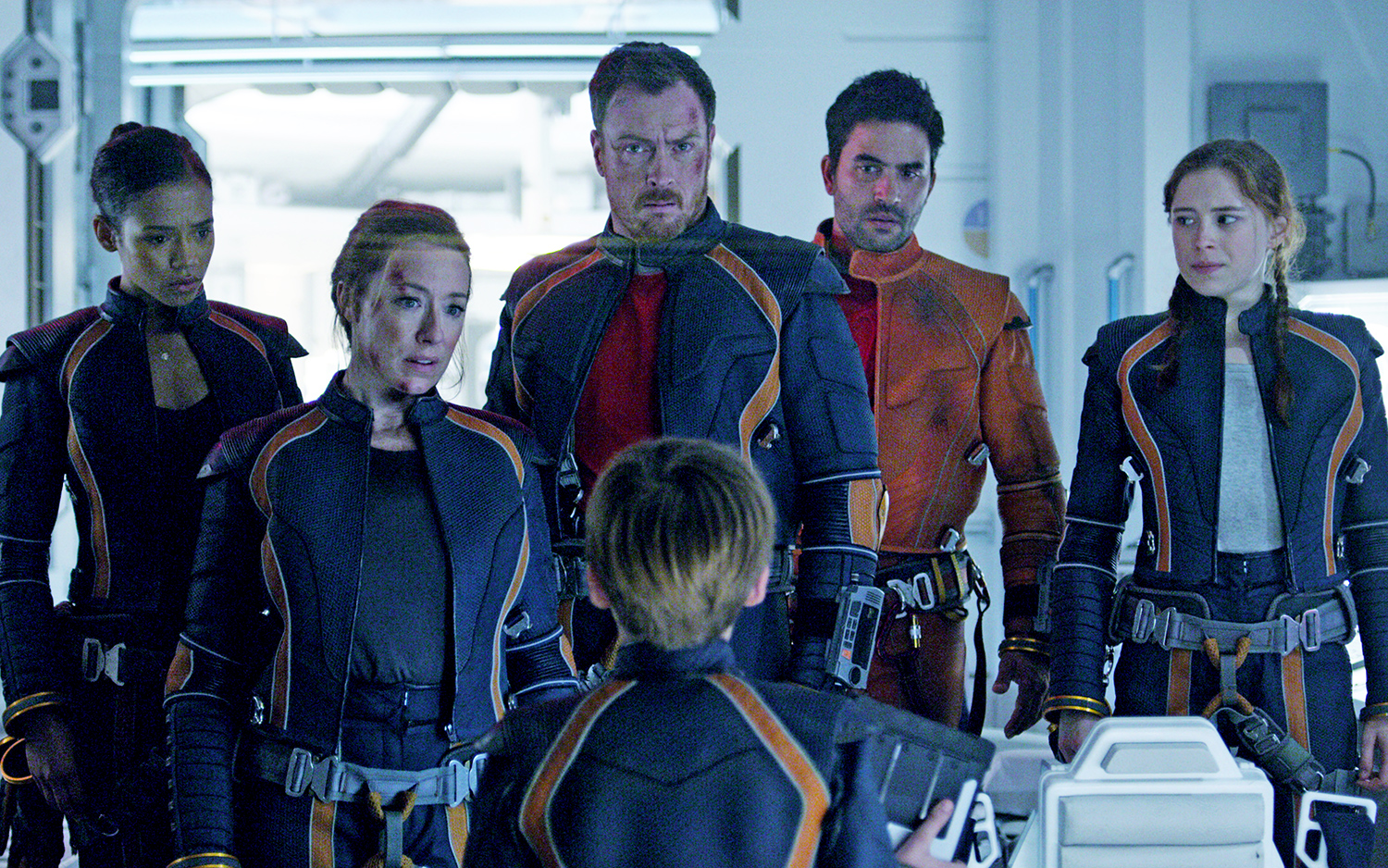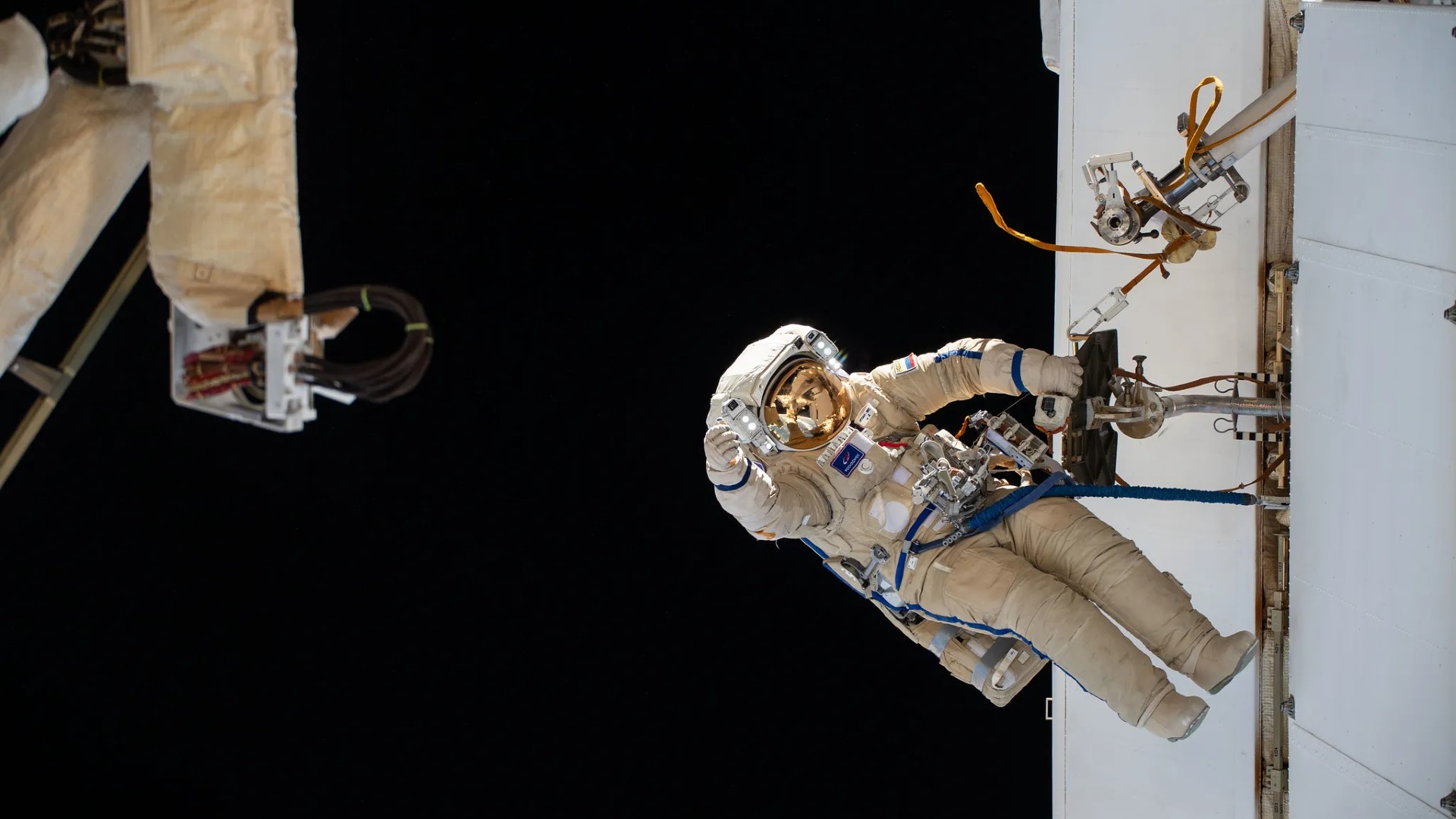A Dark Version of 'Lost in Space' Is Coming to Netflix This Month

Breaking space news, the latest updates on rocket launches, skywatching events and more!
You are now subscribed
Your newsletter sign-up was successful
Want to add more newsletters?

Delivered daily
Daily Newsletter
Breaking space news, the latest updates on rocket launches, skywatching events and more!

Once a month
Watch This Space
Sign up to our monthly entertainment newsletter to keep up with all our coverage of the latest sci-fi and space movies, tv shows, games and books.

Once a week
Night Sky This Week
Discover this week's must-see night sky events, moon phases, and stunning astrophotos. Sign up for our skywatching newsletter and explore the universe with us!

Twice a month
Strange New Words
Space.com's Sci-Fi Reader's Club. Read a sci-fi short story every month and join a virtual community of fellow science fiction fans!
Netflix will launch a reboot of "Lost in Space" on April 13 — and you can expect a much darker, more intense tone than the lighthearted feel of the original 1960s series, its screenwriters say.
"Lost in Space" was a CBS show that ran between 1965 and 1968, which overlaps with NBC's run of the original "Star Trek" (1966-1969). While "Star Trek" focused on a military-style crew, "Lost in Space" examined a space journey's effects on the Robinson family, who were on their way to Alpha Centauri, the nearest star system to our own. The family's ship was sabotaged, and they lost their way, leading to 83 episodes' worth of adventures.
The Netflix reboot's first (and, so far, only) season will include 10 episodes. It has already made some changes to the story, including swapping the gender of one of the main characters, Dr. Smith. (The character was male in the original and is female in the reboot.) A Netflix trailer released March 6 shows a ship exploding with the Robinson family on board, leaving them stuck on a remote planet. [Biggest Space Movies to Watch in 2018]
"This is a truly deep dive," screenwriter Matt Sazama told Space.com. "For a true fan of the show, especially the first six episodes, we really embrace the survival aspect." He added that the family's ability to work together — a key theme of the 1960s series — will also be explored in the new series. "They come together over these incredible difficulties and these obstacles in their life," Sazama said.
Fans will also see a new version of Robot, a beloved character from the 1960s show. In the original series, Robot had superhuman strength paired with human-like emotions and abilities — laughter, sadness and even guitar-playing skills.
Burk Sharpless, the other screenwriter for the new "Lost in Space," said that, as a child, he often thought about how it would feel to have a robot just like the one in the original show. He said the new version of Robot takes some of its inspiration from the powerful horse in the 1979 movie "The Black Stallion" that helps take care of the child Alec Ramsey after the pair are shipwrecked on a remote island.
The new series "explores what it would be like to have this bodyguard, or this friend," Sharpless said. "We hope this relationship will really capture people," he added. "You can't believe, until you see the show, the relationship between the humans and Robot."
Breaking space news, the latest updates on rocket launches, skywatching events and more!
When asked what space series after the original "Lost in Space" inspired the producers, both Sharpless and Sazama said the rebooted "Battlestar Galactica" (2004-2009) was the gold standard for how to tackle a series reimagination. The original "Battlestar Galactica" of 1978 to 1979 and the reboot had completely different tones, but the reboot gained a large following of fans and remains popular among space geeks to this day. The producers attribute the success of "Battlestar Galactica" to the fictional crew coming together like a family, which will definitely be the theme of the new "Lost in Space." [NASA Has Plenty of Robots in Space]
Incorporating new science
There's been a key change to the show's science since the 1960s. In the original series, the family escapes an overpopulated Earth in the year 1997, bound for a planet orbiting the star Alpha Centauri. The star is part of the closest star system to Earth, located about 4 light-years away. But back in the 1960s, nobody knew if there were any exoplanets around Alpha Centauri. After all, the first exoplanet — period — wasn't even confirmed until the 1990s.
Our understanding of the system changed forever in 2016, when astronomers announced that they had found a planet circling Proxima Centauri, the smallest star in the three-star Alpha Centauri system. What's more, the planet appeared to be in the habitable zone of its star, where water could plausibly exist on its surface. Later research raised questions about how habitable the planet is, given that its star is highly variable, but the possibility of life so close to Earth is another tantalizing tidbit for the series.
"The principle of this show was the science of other planets and how space travel works in our current environment," Sazama said. He mentioned that the producers were impressed with past fictional works of space exploration that emphasized realism — think 2015's "The Martian.
"One of the keys is the sense of realism," he added. "Building this environment will excite people and bring a real ability to make the Robinson family all the more compelling."
This attention to detail even came to discussions of the ship's ion drive that propels it through space. "We did quite a bit of research ... We wanted to make sure it was relatable for the audience," Sharpless said.
The new "Lost in Space" stars Mina Sundwall, Molly Parker, Toby Stephens, Parker Posey, Maxwell Jenkins, Taylor Russell and Ignacio Serricchio. It is produced by Legendary Television, Synthesis Entertainment and Applebox Pictures.
Follow us @Spacedotcom, Facebook and Google+. Original article on Space.com.

Elizabeth Howell (she/her), Ph.D., was a staff writer in the spaceflight channel between 2022 and 2024 specializing in Canadian space news. She was contributing writer for Space.com for 10 years from 2012 to 2024. Elizabeth's reporting includes multiple exclusives with the White House, leading world coverage about a lost-and-found space tomato on the International Space Station, witnessing five human spaceflight launches on two continents, flying parabolic, working inside a spacesuit, and participating in a simulated Mars mission. Her latest book, "Why Am I Taller?" (ECW Press, 2022) is co-written with astronaut Dave Williams.
